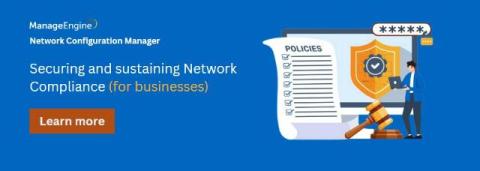Beyond the perimeter defense: How OpUtils elevates your network security posture
When networks were simpler, IT teams relied on firewalls as their primary defense, believing that securing the network perimeter was sufficient. However, as networks have grown in complexity—both horizontally and vertically-traditional security measures are no longer enough. The rise of remote work, cloud computing, layers of devices and applications, both evolved and primitive, and sophisticated cyberthreats has further emphasized the need for a more adaptive security strategy.











